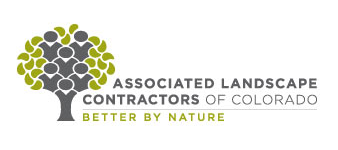| Selling sustainability to consumers |
 |
| Written by Colorado Green NOW |
| Tuesday, May 25, 2021 02:00 AM |
|
An IBM study, in partnership with the National Retail Federation, asked nearly 19,000 people in 28 countries around the world about sustainability and its role in their habits as consumers. Nearly eight in 10 consumers indicated that sustainability is important to them. 57% said that they were willing to change their purchasing habits to reduce environmental impact. Of those who said they’d change their habits for a negative environmental impact, 70% said they would pay a premium for more sustainable options. Consumers in the U.S. may want to be more eco-minded, but they also want to know “what’s in it for me” (WIIFM) when making a decision about a purchase of goods or services. When it comes to sustainable landscapes that value proposition can reliably be shown: money savings as a result of water conservation, less maintenance and lower plant loss; and most importantly, an attractive landscape with plants that can thrive. Consumers need to hear those benefits alongside the word sustainable. Best to beat them to the punch and not wait for them to ask why they should opt for sustainable practices. Those WIIFM benefits are part of selling sustainability. After all, no product, service, or action is sustainable if the consumer is not committed to seeing it through. In other words, it’s equally important that consumers understand the practical reasons for creating a sustainable landscape. Investing in a new landscape or in landscape maintenance that follows GreenCO Best Management Practices, SLM Colorado principles or other sustainability recommendations should support client values and beliefs, but they must also make good financial sense. That’s where the green industry can flex its muscles. There is plenty of research and data to support the benefits of using sustainable practices. However you label it: “Right plant, right place,” “GreenCO Best Management Practices,” or “Sustainable Landscape Management (SLM),” there is science to vouch for the value and even the necessity of the installation and maintenance of landscapes that are well-suited to local conditions and which use fewer resources. A survey by Boston Consulting Group found that the 2020 pandemic resulted in a heightened awareness of the importance of environmental issues. A majority of respondents (75%) believed that “environmental issues are as concerning as—or more concerning than—health issues.” A sustainable landscape can address both of those concerns for consumers: improving air quality, reducing runoff, cooling communities and more. Luckily for the landscape contractor, the benefits of healthy, sustainable landscapes can address both concerns simultaneously. For some, it may be useful to revisit two studies conducted in Colorado which provide valuable information to support the use of water-wise landscapes and can help inform consumer marketing. The Hidden Value of Landscapes: Implications for Drought Planning was a review conducted by Colorado State University. It revealed key facts that support the ongoing maintenance of built landscapes even in times of drought. The ROI of keeping landscapes healthy is realized with multiple economic, social, health and environmental benefits. To quantify the benefits of following GreenCO’s Best Management Practices, Wright Water Engineers, Inc., Northern Colorado Water Conservancy District, and Aquacraft, Inc. conducted a literature review. The results are geared toward green industry professionals and require some interpretation to make them relevant to consumers. Taking the GreenCO BMPs and ALCC Green Strategies for Colorado Landscapes one step further, ALCC developed SLM Colorado, a comprehensive approach to keeping landscapes healthy with fewer resources and establishing a landscape that will do well in Colorado’s unique conditions. Clients may be drawn to SLM Colorado not just for the environmental benefits but for the economic benefits of using and paying for less water and not having to replace plant material that does not survive where planted. Don’t assume Boomers don’t care Read more in this issue of Colorado Green NOW: |


